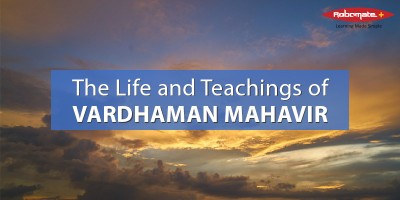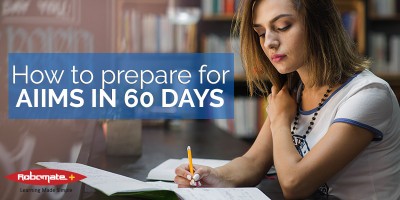State Board Commerce (XI-XII) - Test Papers
The Life and Teachings of Vardhaman Mahavir
Mahavir Jayanti is celebrated around the country with excitement and gratitude. Vardhaman Mahavir is the 24th Tirthankara of the Jainas. The life history of Vardhaman Mahaviris a valuable asset for all the people of this planet. The principles of Vardhaman Mahavir are the teachings of Jainism.
Life History of Vardhaman Mahavir
He was the son of Siddhartha, who was the head of Kshatriya people. He was born in a very rich family. He started his life normally but he was not attached to the materialistic world. He decided to become a monk in his early 30s; after the death of his parents. His soul was wandering for the truth. He struggled very hard for 12 years, being naked and homeless.
The hardship of Vardhaman Mahavir finally came to a fruitful end. He got the enlightenment. With the supreme enlightenment; he preached his faith for thirty long years. He became the life coach of youth and travel places in order to teach people. Vardhaman Mahavir died at the age of 72.
Teachings of Vardhaman Mahavir
The doctrine of Jainism is based on the principles of Vardhaman Mahavir. He taught five most important things for leading a pure life. Those are non-violence, truth, non-stealing, non-possession, and celibacy. Vardhaman Mahavir did not believe in the Vedas or rituals. He believed in love. He preached not to harm anyone by any means. He also favored the freedom of women.
KARMA: Mahavir believed that every element is a combination of material and spiritual aspects. He taught people about how the soul is linked with the Karma. He preached that the true purpose of the life is to meet the pure soul, the Paramatma.
NIRVANA: Nirvana means to attain salvation. He taught people to avoid the evils by following his five principles. Vardhaman Mahavir didn’t believe in God. He said that the man was the maker of his own destiny. There is no need to fear from God.
The Significance of the teachings of Vardhaman Mahavir
Vardhaman Mahavir made the religion simple. His teaching is not about God, it’s about the soul. His message of the perfect knowledge, perfect power, perfect bliss and perfect perception reflects the internal beauty of his soul.
Vardhaman Mahavir’s teachings are significant to this age of big data and technology. Our life is full of emotions, excitements, conflicts, and cravings. All we need is the mental peace. According to the amazing teachings of Vardhaman Mahavir, our souls will find the right path at the right time. We just have to understand the essence of his life history and his teachings.
How to Become a Doctor in India
This article is directed to those who want to know the Steps to become a Doctor in India. So, if you’re wondering about the steps you need to follow to achieve your ultimate goal, this career guide will be of great help. Eligible criteria, entrance exams, admission process and other important details are some of the factors that we kept in mind when this guide was created. This step by step guide will attend to all the needs of the Indian Medical Aspirants.
Initially, it is very important to know some important facts about How to Become a Doctor in India. The Title “Doctor” can be obtained by different methods. It is possible to be earned by obtaining a PhD in any specific field of study, by succeeding in completing medical courses such as MBBS and DBS, or by finishing other kinds of courses like BPT, BAMS, and BHMS, among some others.
Moreover, we will only focus on the MBBS course in this article and provide you the necessary steps to follow in order to become a Medical Practitioner in India.
Reasons To Become a Doctor
First off, Doctors improve their patients’ life quality and expectancy by treating them and make them relieved and happy as a result.
This is a Profession that will not only give you monetary advantage, but also bring you great job satisfaction. It is well known that Doctors in India have tremendous opportunity of working in either the public or private sector.
By treating patients directly every day, doctors are able to bring joy and happiness to people’s lives. This is one of the main reasons why Doctors are held in high regards. The amount of personal and professional satisfaction that this job brings is overwhelming.
Your Duties as a Doctor
Depending on which field you specialize as a doctor, you will have different duties. These are some of them:
- Examine patients and provide a diagnosis.
- Provide medicine prescriptions.
- Practice surgery.
- Be in charge of a staff consisting of nurses, paramedical doctors and allied healthcare workers.
- Provide education not only to patients but to their family members as well.
- Evaluate patients’ medical record and keep track of their recovery and evolution.
Skills Needed To Become A Doctor.
If you seek to become a medical practitioner, it is necessary for you to have the following abilities:
- Vocation for helping others.
- Compassion and empathy.
- Good observation skills.
- Physical condition.
- Total emotional control.
- Knowledge in medicine.
- Mental Agility.
- Autonomy in learning and keeping oneself updated.
As it was previously mentioned, this article will focus on the MBBS (Bachelor of Medicine and Surgery) course. It consists of an academic program that takes five years and six months. Its last year focuses on rotating internships.
So, these are the steps to follow in order to become a doctor in India.
STEPS TO BECOME A DOCTOR IN INDIA
- Meet the eligibility criteria: In order to be eligible to take part into a MBBS course you need to pass 10+2 science stream with Physics, Biology, and Chemistry subjects. So, it is very important that you take care of this matter before applying and make sure you possess all the academic requirements.
- Take entrance exams: If you want to pursue the MBBS course, it is necessary for you to successfully go through a relevant entrance exams in India such as: NEET, AIIMS, AFMC, and others.
- Apply for Admission: After meeting the preciously stated criteria you can now proceed to apply for Admission Process which varies from one state to another.
- Completing the course: After having completed steps 1 to 3 and after having succeeded 4,5 years of studies and 1 year of internship the title of “Doctor” will be granted to you.
In addition, you have to be aware that this is not the only method there is to obtain the “Doctor” tittle. As it was mentioned before, there are many other methods you could apply to earn this tittle (BDS-Dentistry, BAMS-homeopathy, BUMS-Unani, B.V.Sc and AH-Veterinarian Science, among others.
Finally, if you follow these steps to become a doctor, your academic preparation should not stop here. There are different post grade programs that will allow you to take your studies beyond and be able to make it through in today’s world.
Things You Can Take and Cannot Take in the JEE Main Exam Hall
Are you ready to crack JEE Main Exam 2020? JEE Main exam is the popular engineering entrance exam in India. JEE Main exam is here. Hope you have collected your admit cards which were made available a few weeks ago. JEE Main 2020 exam is scheduled from Jan 6 2020.
Aspiring engineering and architect students would have prepared day and night with JEE Sample Question Papers and Practice Papers. In the JEE main preparation, many candidates fail to notice the important announcements regarding JEE main exam code of conduct.
Among the rules, candidates who appear for JEE Main 2020 exam should know about the things that they can and cannot take to the exam hall.
Things you can take to JEE Main Exam Hall
JEE Main Exam 2020 Admit Card
JEE Main admit card is the crucial documents that validates the entry to the JEE Main exam 2020. Without admit card no candidate is permitted to the JEE Main exam hall. Since JEE Main admit card is downloadable, carry multiple copies. It is your identity and the invigilator cross-check the identity in the exam hall.
Photo Identity Proof
Aadhar card is the preferred ID proof that candidates should carry to JEE Main exam hall. If you don’t have Aadhar ID, carry any other valid identity proofs.
Disability Certificate (if applicable)
Candidates who applied under this category should carry the disability certificate to the JEE Main 2020 exam hall without fail. The disability certificate shall be issued by the recognized authority.
A Clear Clipboard
Clipboard is an important accessory for candidates who appear JEE Main 2020 exam offline. Always carry a clear clipboard with no marks or scribbles. Any unrelated scribbling may lead to expulsion from JEE Main 2020 exam.
Things you cannot take to JEE Main Exam Hall
Things you should not take to JEE Main 2020 exam hall includes the following:
Pens and Pencils / writing objects
Candidates should not carry pens and pencils as they will be provided in the JEE Main exam hall. Similarly, usage of pencil is completely prohibited.
Digital Watches
Wearing digital watches are a big no-no to JEE Main exam 2020.
Jewelry / Ornaments
According to the reports from JEE Main 2017 exam, candidates are not allowed to wear any ornaments. Candidates removed the jewelries, accessories before they entered the JEE Main exam hall.
Other things you should NOT carry to JEE 2020 Main Exam
- Calculators
- Log tables
- Watches other than analog watches
- Paper – plain or scribbled
- Any written or printed materials
- Slide rules
- Eraser
- Correction Fluid or whitener
The rules are very strict and candidates shall be careful to avoid taking things that are not allowed to the JEE Main exam hall. Otherwise, he or she may be stopped from writing the exam.
Make a kit and checklist, ‘JEE Main 2020 Kit’ and ensure you have all those things in the kit. Keep the checklist ready at least five days before JEE main exam.
How To Prepare for JEE Main in the Last 10 Days
India is the land of opportunities, A lot of professions are in demand nowadays, Medical, Engineering, Fashion etc. Engineering is one of the major professions adopted by the students of India. India also owns some of the Best Engineering Institutions in the world. The premier Indian Engineering Colleges are 23 IITs (Indian Institute of Technology) and 31 NITs (National Institute of Technolgy) and various IIITs (Indian Institute of Information Technology). The first step to getting admission to these colleges is cracking JEE Main.
Students have to crack a series of Tests named JEE. JEE stands for Joint Entrance Examination. JEE has two parts, first JEE Main and second JEE Advanced. If a student cracks JEE Main with good rank, He can get admission in NITs and various other Engineering of National and State Importance. For Admission in IIT, one has to secure a good rank in JEE Advanced.
How To Prepare for JEE Main in the last 10 Days
Good Planning
Every goal needs a good plan and right amount of Hard work and ‘Smartwork’ as only Hard work can’t guarantee you success, you have to study smartly preparing the right Topics. Plan and define Every Day’s topics and schedule. Try to utilize your time in such a way that it produces maximum output.
Time Management
Time Management is also important for JEE, being a lengthy exam, you have to manage time and decide which section has to be attempted at what time and which Subject can help you score high in less time. For Example you can attempt Chemistry first after than Physics and Mathematics.
Short Notes
Short Notes can also help you to revise quickly at the end time. Practicing short MCQs can also be beneficial
Attempt Tests
Focus on improving your problem-solving speed, which requires practice. Drill yourself with regular numerical problems.
Attempting Previous Year Papers can also help you to analyze which type of questions come in the Exam. Mock Tests can also improve your confidence and speed, a lot of them are available online.
Books like HC Verma for Physics, RD Sharma for Mathematics and NCERT for Chemistry can also help you. A lot of questions are related or directly taken from these Books. NCERT is a must for all the subjects.
Pay Attention to both Class 11 and Class 12 Topics and revise as much as you can.
Do not try to learn new concepts in this precious time try to focus on those topics in the JEE Main Syllabus you find easy and you’re familiar with.
Important Topics for JEE Main:
JEE Main 2020 Important Chapters & Topics for Physics
| High Weightage | Low Weightage |
| Heat & Thermodynamics | Heat Transfer |
| Ray Optics | Fluids |
| Electromagnetic Waves | Nuclear Physics & X-Rays |
| Semiconductors | Work, Energy & Power |
| Error & Instrument Analysis | Units & Measurements |
| Gravitation | Dual Nature of Matter & Radiation |
| Wave Optics | Circular Motion |
| Photoelectric Effect | Center of Mass & Collisions |
| Oscillations | Communication Systems |
| Electromagnetic Induction & Alternating Current | Laws of Motion |
| Rotation | |
| Kinematics | |
| Electrostatics | |
| Current Electricity & Capacitors | |
| Properties of Matter | |
| Magnetic Effects of Current & Magnetism | |
| Bohr’s Atomic Model | |
| Waves & Sound |
Topics with Most Weightage – Last year, the topics from which the maximum number of questions were asked were:
| Subject | Topics | No of Questions | Marks |
| Physics | Electrodynamics | 8 | 32 |
| Mechanics | 8 | 32 | |
| Modern Physics | 5 | 20 | |
| Heat & Thermodynamics | 4 | 16 | |
| SHM & Waves | 3 | 12 | |
| Optics | 2 | 8 |
JEE Main Important Chapters and Topics For Chemistry
| High Weightage | Low Weightage |
| Atomic Structure | Chemical Equilibrium |
| Gaseous & Liquid State | Redox & Volumetric Analysis |
| Electrochemistry | Solutions |
| Chemical Kinetics | Metallurgy |
| Nuclear & Surface Chemistry | Qualitative Analysis |
| Chemical Bonding | Hydrocarbons |
| d-Block Elements | Mole Concept |
| Co-ordination Compound | Ionic Equilibrium |
| Alkyl Halides | Solid State |
| Aromatic Compounds | s-Block Elements |
| Thermodynamics | Periodic Classification |
| p-Block Elements | Classification & Nomenclature |
| General Organic Chemistry | Alcohol & Ether |
| Isomerism | Nitrogen Compounds & Aliphatic Amines |
| Aldehydes and Ketones | Biomolecules & Polymers |
| Carboxylic Acids & Its Derivatives |
Topics with Most Weightage – Last year, the topics from which the maximum number of questions were asked were:
| Subject | Topics | No of Questions | Marks |
| Mathematics | Differential Calculus | 7 | 28 |
| Integral Calculus | 4 | 16 | |
| Coordinate Geometry | 3 | 12 | |
| Co-ordinate Geometry (3-D) | 2 | 8 | |
| Matrix & Determinants | 2 | 8 | |
| Probability | 2 | 8 | |
| Matrix & Determinants | 2 | 8 | |
| Trigonometry | 2 | 8 |
Download Important Facts & Formulae for JEE
JEE Main Important Chapters and Topics For Mathematics
| High Weightage | Low Weightage |
| 3 Dimensional Geometry | Differential Equation |
| Vectors | Differentiation |
| Determinant & Matrices | Trigonometric Equation |
| Sequence & Series | Statistics |
| Straight Line | Mathematical Logic |
| Circle | Set & Relation |
| Probability Distribution (Binomial + Mean & Variance) | Height & Distance |
| Definite Integral & Area Under the Curve | Trigonometric Ratio & Functions |
| Limits, Continuity & Differentiability | Properties of Triangle |
| Functions | Permutation & Combination |
| Application of Derivatives | Indefinite Integral |
| Conic Sections | |
| Complex Number | |
| Quadratic Equation | |
| Binomial Theorem & M. I. |
Topics with Most Weightage – Last year, the topics from which the maximum number of questions were asked were:
| Subject | Topics | No of Questions | Marks |
| Chemistry | Organic Chemistry-II [Alkyl Hallide, Alcohol & Ether (Reaction Mechanism), Aromatic Compounds, Biomolecules, Carbohydrates, Amino Acids and | 10 | 40 |
| Polymers, Carbonyl Compounds, Environmental chemistry, Grignard Reagent, Reduction, Oxidation & Hydrolysis] | |||
| Physical Chemistry-I [Atomic Structure & Nuclear Chemistry, Ionic Equilibrium, Mole Concept, Thermodynamics and Thermochemistry] | 7 | 28 | |
| Physical Chemistry-II [Chemical Kinetics, Electrochemistry, Solid State, Solution & Colligative Properties, Surface Chemistry] | 5 | 20 | |
| Inorganic Chemistry-I [Chemical Bonding, Periodic Table & Periodicity in Properties, S-Block] | 5 | 20 |
Best of Luck for your JEE Exam, Work Hard and Achieve Success.
How to prepare for AIIMS Entrance Exam in 60 days!
AIIMS Entrance exam, a national level undergraduate medical entrance test, is conducted by AIIMS (All India Institute of Medical Science), a medical College and Medical research public university based in New Delhi. It was founded in 1956 under the Ministry of Health and Family welfare.
Preparing for AIIMS Entrance exam is not very easy and to do it in 60 days is going to be very difficult. But nothing is impossible if you are confident enough. With hard work and full concentration on your studies you can crack the exam. If you are clear with your basics, then chances are fair to clear the exam but if you have to start from your basics, it is going to be very difficult.
What to do initially
Let’s take the situation where you are clear with your basics (because starting from basics and clearing is not possible that’s why we will not consider that situation) then start solving previous year papers with full dedication. Solve at least previous 5-6 years AIIMS Entrance exam papers. Solve each & every question and wherever you get stuck, note it down. Make points of your weak areas and improve them. Initially solve 25-30 questions daily as well as improve weak points related to those questions. Gradually increase this number till 150+ questions and be consistent and have faith. However, remember there are other students too who are preparing since 2-3 years and you have to compete with them. Take it as a motivator not for losing your confidence.
Do Smart Study not hard work on study.
PRACTICE MAKES A MAN PERFECT
Once you are done with AIIMS Entrance exam previous year papers, go through class 12th Physics, Chemistry & Biology to understand basics as revision and keep doing whenever you have time. As questions are objective type, you can purchase objective books like AIPMT, AIIMS, CBSE, Etc and practice questions as much as you can and solutions are available at the end of the chapter you can refer them but before that give your 100% in solving the questions. As time is very less so you cannot cover whole syllabus, concentrate only on important topics. Practice objective type questions.
Go for MOCK TESTS
One month before AIIMS Entrance exam, start giving mock tests from a good publisher. Attempt the mock test as you would the real exam. As the exam is of 3 hours & 30 minutes, there should be no disturbance while attempting mock test. Do the analysis of the paper and solve all questions again and improve weak points. Attempting mock tests will make you comfortable while giving real exam.
Don’t lose hope!
In every test there are some most important topics & some less important. Focus on important topics first. Have a good command over them then go for less important. Be determined to clear the exam and keep faith in yourself.
How to Prepare for Boards and JEE Simultaneously
Question by JEE Aspirants:
Students who are in class 12 have to face Pre-Boards, Board Exams, then there is JEE Mains just after that and then there is JEE Advanced.
Students have pressure to do well in boards and get a good rank in JEE Mains, and perform well in JEE Advanced too.
Will I get a good rank in JEE Mains or JEE Advanced.
Should I concentrate on JEE Mains or not?
At this stage how do I manage my time?
How do I optimize preparation for Boards versus JEE Main versus JEE Advanced?
Shubham Goel, AIR 6 (IIT JEE Advanced 2014)
I think we can back-track the whole process. Seeing that the final aim is to get admitted into one of the best colleges in India. Students will usually have a college on target which he wants to get into. I think by the time he reaches the stage where-in he has to prepare for his boards and his pre-boards, he’d know, what kind of colleges he is targeting. Based on that, he knows that he is preparing for JEE Advanced or for JEE Mains. You need to understand what is required. If your prime preparation is for JEE Advanced, then JEE Mains is just an exam which you have to clear. And because there is a lot of overlap of syllabus between JEE Mains and JEE Advanced, they are only a few topics, which you need to study additionally for the JEE Mains. So, I feel there is no extra preparation required for the JEE Mains. Other than those few additional topics which don’t happen to be in JEE Advanced syllabus.
Sarvesh Mehtani, AIR 1 (IIT JEE Advanced 2017) Additional input
Actually, there is just one strategy. If it’s Physics & Chemistry you have to study mostly NCERT for boards. My preparation was such that, when the boards will come, then all the NCERT for Physics and Chemistry is to be studied. NCERT is very important for the Main as well as Advanced. If you study NCERT during that period, you can prepare well for the boards. And then JEE Main & JEE Advanced. For Math, if you are studying well for the Main, then there should be no problem for boards. And Physical and English you can complete both in a month.
Anand Prakash, IIT Roorkee
If you have covered the basics, you have already covered a lot of ground for your board exams. Last one and a half or two months preparation is more than enough for boards and Main. There are additional 3-4 topics and in the last days. If we cover those topics we can actually be well prepared. It’s also about the difference in preparation because JEE Main and JEE Advanced are based on two different approaches. In JEE Main it’s more practice. If you practice a lot of questions, including easy questions, you might get a good rank in JEE Main. However, in JEE Advanced you require to understand those topics in details. In JEE Advanced you may skip few topics and not complete the entire syllabus. But for JEE Mains, you have to complete the entire syllabus. Therefore from October, November & December you prepare differently because there is the major difference.
Download JEE Main & Advanced Previous year Question Paper














